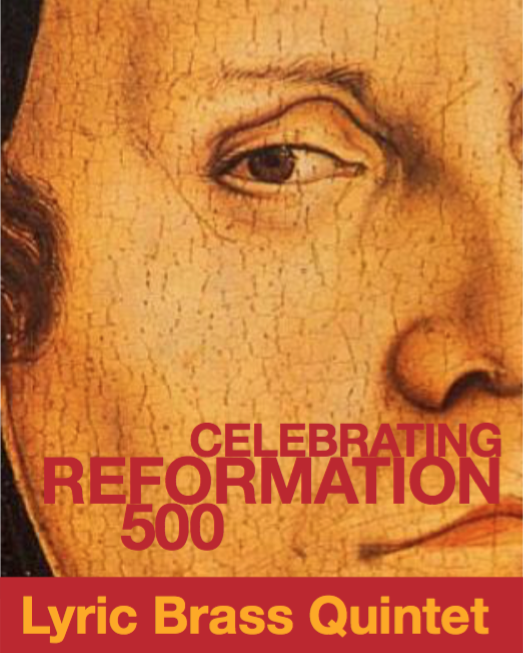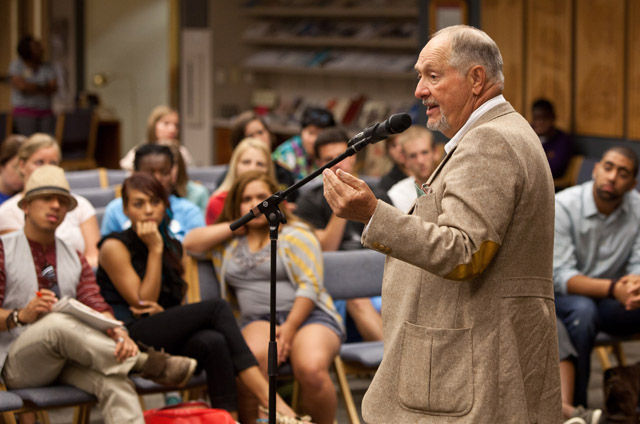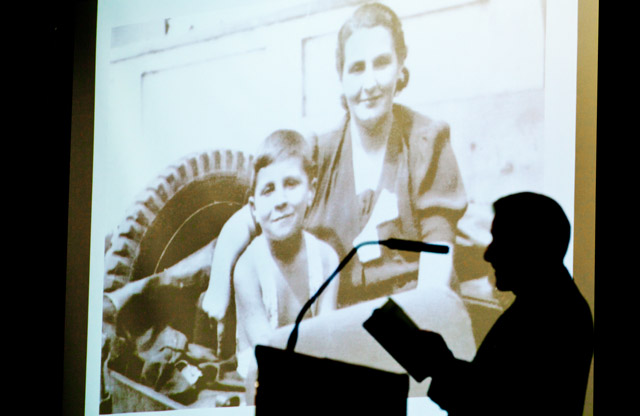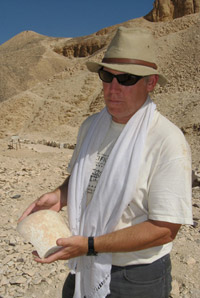Page 51 • (606 results in 0.042 seconds)
-

The Lyric Brass Quintet will perform “Luther, Seven Scenes for Brass Quintet” composed by PLU music professor emeritus Jerry Kracht, in commemoration of the 500th anniversary of the Reformation on Sunday, April 23, at 3 p.m. in Lagerquist Concert Hall. “The piece is highly programmatic—that…
commissioned for them. In 2012, The Lyric Brass released a CD “American Music for Brass Quintet” which includes works by Gwyneth Walker, Charles Ives, David Snow, and a new work written for the group by Sy Brandon. Read Previous Sacred concerts highlights faith and music Read Next Celebrated composer and PLU alumna Cindy McTee visits campus LATEST POSTS PLU’s Director of Jazz Studies, Cassio Vianna, receives grant from the City of Tacoma to write and perform genre-bending composition April 18, 2024 PLU
-
Blog depicts people, places on seven continents From the tip of the world in Antarctica to the top of the highest peak in Africa, PLU students are immersing themselves in the world and gaining valuable insight this J-Term. Nearly 400 students are studying away on…
valued sustainability when she came across a sculpture. Shaped like a triangle, it was made from various recycled items and had lights powered by a solar panel. “I was amazed at the fact that the population uses so many plastics, and the amount of recycling bins are far and few between,” she wrote. “However they are available and way easier to find than in the Houston airport.” In order to make a difference – and avoid having recyclable garbage lining the street, like in São Paulo – each American
-
Mental skills coach remembers Olympics For the last month, PLU Professor of Movement Studies and Wellness Education Colleen Hacker has worked as the mental skills coach for the U.S. women’s field hockey team at the 2008 Summer Olympics, as well as working with individual players…
spending time in a specialty tea shop, tasting, learning about teas, how to prepare them, and the types. The owner was a remarkable woman. What has been the reaction to you, when they find out where you are from, that you are an American? The people are so eager to help. They are very earnest. They will stop and try to help and will personally, sometimes physically, take you to where you need to go, rather than just point. The taxi drivers often try out their English. Many people will just want to stop
-
Illegal animal trade Charles Bergman approached a man known to provide parrots on demand in the Texas border town of Brownsville. He asked if the man knew where he could get 25 of the colorful, highly intelligent birds. At first the man didn’t buy the…
last week. “It’s a sobering and grim topic,” Bergman said. And one without easy answers. Illegal wildlife trade ranks right behind arms and drug smuggling as the most profitable and sizeable illegal trade in the world, Bergman said. Although laws have been passed in the U.S., Europe and in Mexico and South American countries, the trade still persists and flourishes, he said. Often it’s still legal in countries, though it may be illegal right next door. A total ban on the trade of an entire species
-
https://www.youtube.com/watch?v=d0eHyaJ26Ks Patience and a good ear essential in studying elusive crossbills, which live, breed and sing in the canopy By Barbara Clements Having a conversation with Julie Smith is a stop and go affair. In mid-conversation, she’ll stop, and listen. And then pick up the…
., a small town which clings a point of land on the Olympic Peninsula. Each is carrying a sensitive directional microphone aimed at the canopy of a Sitka Spruce stand. About 100 feet above the trail, a chit-chit-chit sound drifts down. It’s the call of a particular type of North American Crossbill-unglamorously named “call type 10.” Predictably, the types range from one through ten, with type 10, the elusive bird over our head, having been described in scientific literature only 18 months ago
-

Bob Zellner spoke to students about his experiences as a civil rights activist in the 1960s as part of the kick-off event for the Diversity Center’s 10 year anniversary. ‘We have a lot of work to do’ By Chris Albert While an angry crowd piled…
mind. He then woke up in jail. Still alive, but changed. It wasn’t the last time he would end up in jail. It had been his first demonstration as a field officer for the Student Nonviolent Coordinating Committee. It was the early 1960s in Mississippi. As a civil rights activist, he was there to lead a peaceful protest condemning the murder of an African American man whose supposed crime had been registering to vote. Zellner, now 72, shared his story with students last week as the kick-off for the
-

George Elbaum reads from his book “Neither Yesterdays Nor Tomorrows” about his survival in Poland during WWII. On the screen behind him is a picture of Elbaum and his mother taken shortly after the war ended. (Photo by John Froschauer) Survivor of the Warsaw Ghetto…
then finally the US. The family came to New York, North Carolina and then Oregon. “I remember really buying into the American dream that if you work hard enough, you can achieve your dreams,” said Elbaum, who graduated with four degrees from MIT. He also urged listeners in the CK to make a choice, when they witness injustice, mob action or even bullying, to act. “All of us can choose whether we are on the side of fairness and tolerance,” he said. Read Previous Visiting Writer’s Series – Eric
-

Immigrant described as ‘crawling’ causes professor to take a closer look By Chris Albert, University Communications Adela Ramos will never forget the day when, as a graduate student at Columbia University in New York City, she was reading a “New York Times” article about a…
disparage gender, class and race. “We can all think of a few ways animal descriptions have been used to describe women,” Ramos said. “We tend to think of ourselves as supreme to animals.” Ramos’ examination of language – and particularly how women and animals are described – intersected with immigration issues on the day she noticed the word “crawling” in that “New York Times” article. Ramos understood the issues being a Mexican-American, but she never thought she’d want to examine them as part of her
-

From King Tut to the Mysterious Undecorated Tombs of Ancient Egypt By JuliAnne Rose ’13 If you ever wanted to see the King Tut exhibit, now may be your only chance. Seattle is the last stop for the exhibit before you’ll have to make the…
Science Center in Seattle. “This is a rare opportunity to have these kinds of objects in Seattle,” said archaeologist Donald P. Ryan, director of the Pacific Lutheran University Valley of the Kings Expedition. It’s been more than 30 years since Seattle has seen the wonders of the King Tut exhibit, and the current North American tour showcases twice as many artifacts as before, many of which have never been seen before in the United States. During a dig in Egypt’s Valley of the Kings, Don Ryan
-

Coach Justin Eckstein, left, addresses the Speech and Debate team, including Pam Barker ’14 (behind Eckstein) and David Mooney ’14 (corner of table). (Photo: John Struzenberg / PLU student) You Can’t Argue with Success PLU Speech and Debate Carries on a Tradition of Excellence By…
authoritative new book that offers the first comprehensive history of American forensics, Forensics in America: A History. Building upon this tradition, PLU Speech & Debate has had a very successful season so far. With a largely new team and a new coach, the team’s success is not so surprising considering the amount of work members put into honing their craft. Tinker, for example, is not only working on old skills; he is working on something new: He and his teammates developed a never-before-seen strategy
Do you have any feedback for us? If so, feel free to use our Feedback Form.


